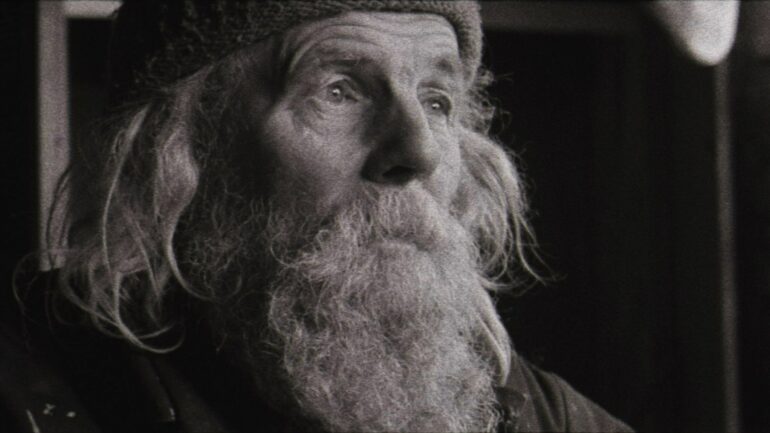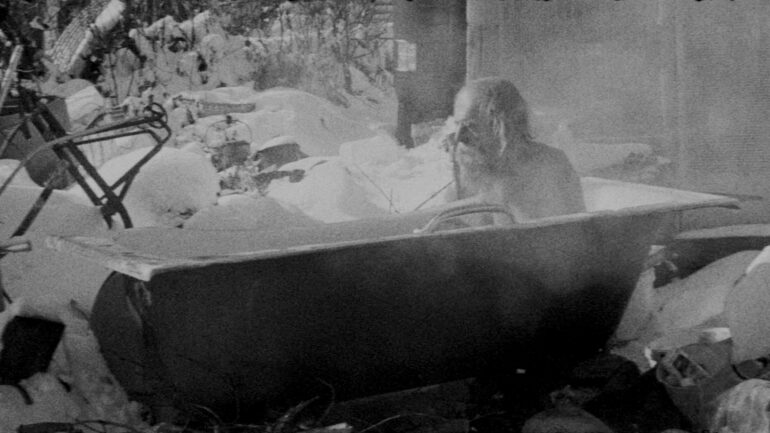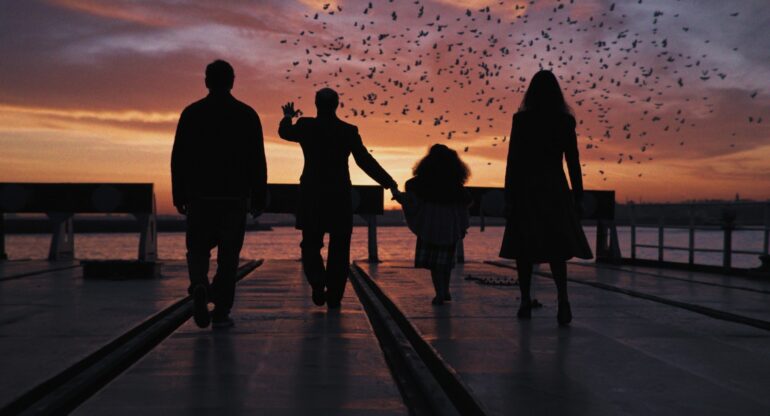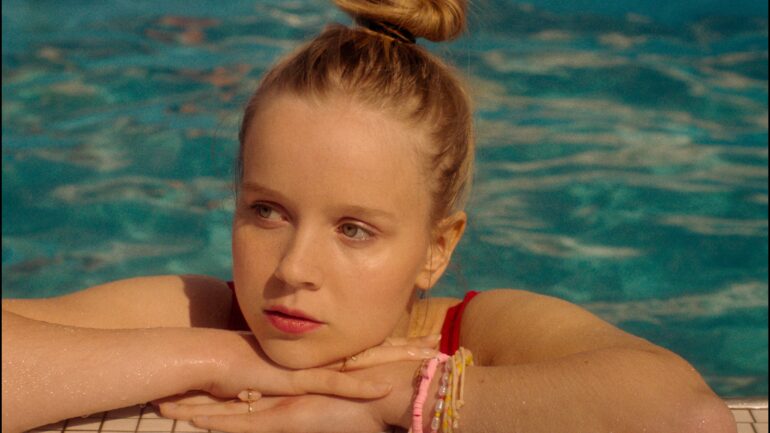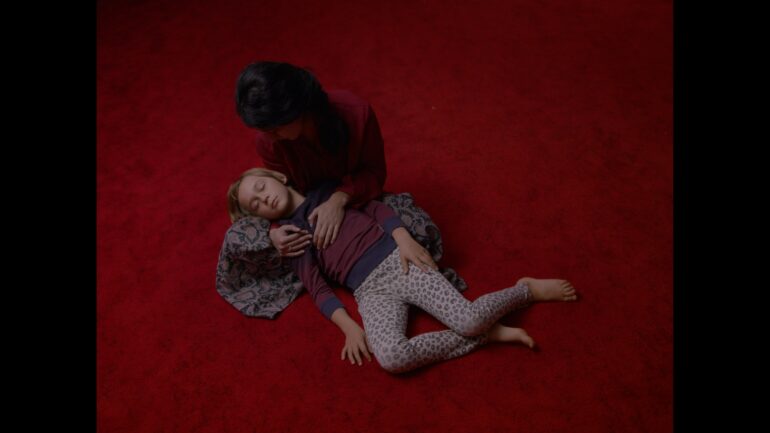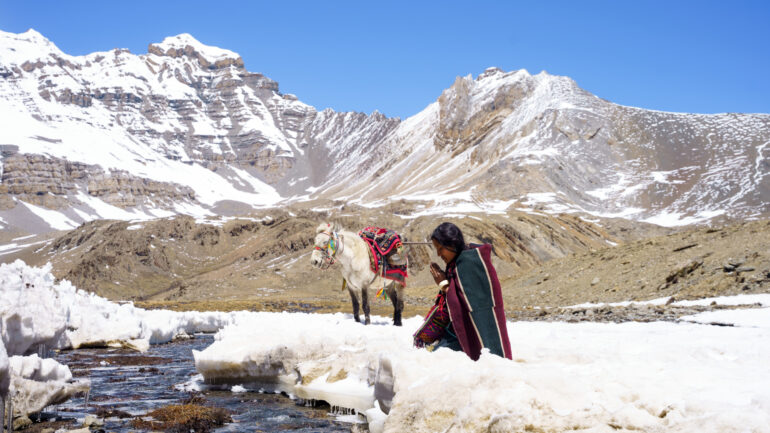WRITTEN BY: Davide Abbatescianni
This year’s Nordic line-up is spearheaded by two titles playing in the main competition – Ben Rivers’ Bogancloch, co-produced with Iceland, and Gürcan Keltek’s New Dawn Fades, co-produced with Norway.
The 77th edition of the Locarno Film Festival kicked off 7 August. On this occasion, the Swiss gathering, set to run until Saturday 17 August, will host five productions with Nordic involvement.
This year’s Nordic presence is led by two titles playing in the festival’s international competition - namely Ben Rivers’ Bogancloch and Gürcan Keltek’s New Dawn Fades (Yeni Safak Solarken).
The title of Rivers’ latest effort refers to Jake Williams’ home, nestled in a vast highland forest of Scotland. According to the fest catalogue, “the film portrays his life throughout the seasons, with other people occasionally crossing into his otherwise solitary life” while “charting a subtly changing life in a radically changing world”. The picture is a sequel to the director’s 2011 Two Years at Sea, also starring Williams.
The doc, produced by British outfits Urth Productions and Hopscotch Films and co-produced by Flaneur Films (Germany) and Akkeri Films (Iceland), is being sold by Rediance.
“I had been in talks with Ben for another project in Iceland that we wanted him to work on. That didn’t work out, but the idea came up that I would co-produce Bogancloch,” relates Icelandic co-producer Hanna Björk Valsdóttir. “As Two Years at Sea is one of my all-time favourite docs, I was thrilled to work on the sequel. We started our talks in 2022, and received the co-production grant from the Icelandic Film Centre in 2023.”
Regarding Akkeri Films’ artistic contribution to the project, she adds: “The most obvious choice was to carry out sound post-production in Iceland. My partner is sound designer Björn Viktorsson, who has decades of experience working in all fields of sound recording, mixing and sound design for both large scale and small scale projects in Iceland and internationally.”
“Ben had seen Lamb (Dýrið) by Valdimar Jóhannsson, for which Björn served as the sound designer. He was impressed by Björn’s sound work. Ben and Chu-Li Shewring - who had worked on the sound up until its final stages - travelled to Reykjavík to finish the film in the studio with Björn. The three of them worked together, and Björn could add his artistic vision as a re-recording mixer. It’s been a great collaboration.”
Valsdóttir is confident the doc will please “anyone with an eye and taste for auteur filmmaking”. “The film is beautiful slow cinema that takes the viewer on a journey. It is a cinematic film with a clear visual style and a poetic feeling to it,” she sums up.
The second international competition title, New Dawn Fades, was produced by Turkey’s Vigo Film and co-produced by Italy’s Slingshot Films, Germany’s The StoryBay and Norway’s Fidalgo.
The plot follows Akın, who has been in and out of the hospital and stuck in the system for years. He no longer leaves his family’s house except for occasional visits to religious monuments in Istanbul. Trying to find refuge in God, he falls into a state of ecstasy. The divine structures trigger something in him. As he loses touch with his true self, his mind shifts into another reality.
“I already knew about the project from Manuela Buono, our Italian co-producer. And I met the director and his producer Arda Ciltepe personally at the Sørfond pitching event. We connected very well from the start, and since then we’ve being collaborating on New Dawn Fades,” Norwegian co-producer Fernanda Rennó tells NFTVF.
“I believe our added value for the film was to bring Sørfond support into it. Thanks to this backing, we could start shooting with more cash flow. As a team, we were providing feedback and taking part in all the stages of the film.”
Rennó describes the film as a “beautiful yet dark journey” into the heart of Istanbul. “We follow the main character’s struggle with the evil that surrounds him, and also the madness within him and in society. The film is well suited to festivals, and I also believe it has a good arthouse distribution potential,” she explains. Greece’s Heretic is selling the picture worldwide.
Meanwhile, the Pardi di Domani strand will host the screening of Konstantina Kotzamani’s mid-length film What Mary Didn’t Know, produced by Ecce Films (France) and co-produced by Foss Productions (Greece), Les Films de Juillet (France), Verket Produktion (Sweden), Felony Film Productions (Cyprus), Frenel (Greece) and Studio Bauhaus (Greece).
“It’s a film about first love, inspired by fables,” says Swedish co-producer Frida Mårtensson. “A teenage Swedish girl on holiday with her parents in the Mediterranean wanders around a huge cruise ship and meets one of the ship’s workers. Both strangers to this tourist attraction, they find each other despite not speaking the same language. Under the whimsical Aegean moon, Greek myths meet Arabian Nights. It’s aimed at an arthouse audience, but as it’s also a coming-of-age film, and Konstantina’s most narrative film to date, so we believe it will resonate with a larger audience as well.”
Zooming in on Verket Produktions’ work on the project, she reveals: “Our producer Jerry Carlsson has known Konstantina since 2015, when they both took part in Future Frames as directors. Since then, we’ve followed her as a filmmaker and seen her amazing shorts. Konstantina has a strong vision and a personal voice in her films which we love, so we reached out to her, telling her we were interested in collaborating.”
“In 2019, she told us that she had been working on a project with Ecce Films, set on a cruise ship and starring a Scandinavian family visiting Greece. They were looking for co-producers, so we read the script, and loved it. Les Films de Juillet and Foss Productions got on board as well, making it an international co-production. The pandemic delayed the process somewhat, but we’re very happy that the film will finally meet its audience at Locarno.”
Speaking of the artistic contribution the Swedish team gave to the project, Mårtensson says: “We got attached as co-producers early during the script stage. The main cast are Swedish, so our contribution consists of three of the leading actors as well as the casting director, and some translation work, since much of the dialogue is in Swedish. Konstantina came to Stockholm for the casting, and we’re super happy to have got the talented actors Tora Sandström, Silas Strandand Carl Johan Merner on board.”
Finally, the two other titles with Nordic involvement heading to Locarno are Anahita Ghazvinizadeh’s short My Life is Wind (a letter) (produced by Javad Safari for Sweden’s Veyde Productions) and Min Bahadur Bham’s feature Shambhala (co-produced by Ruben Thorkildsen for Norway’s Ape&Bjørn).
The short, playing in the Pardi di Domani section, centres on Myriam, a refugee torn from her Middle Eastern home who resettles in the American Midwest. Her initial weeks in this new, alien land are woven into an intimate letter to her grandmother, whom she was forced to leave behind.
Safari describes it as “a poetic drama that sadly is more relevant than ever, concerning current events in the world”. “It’s a story from both the in- and outside of a refugee woman and the challenges she faces coming from a war-torn place, and furthermore in a new alien land. The targeted audience is everyone; from young adults and older, whether you yourself have experience dealing with similar matters or you’re fortunate enough to have escaped these. Our goal was to tell Myriam’s story, and the story of many refugees worldwide,” he further explains.
Shambala, playing in the Piazza Grande sidebar, was one of the titles vying for the Golden Bear back in February. Set in a Himalayan polyandrous village, it follows a pregnant woman called Pema, who faces scrutiny as her husband vanishes. With her monk brother-in-law, her de facto spouse, she seeks him in the wild, unravelling her own self-discovery on the journey.
The feature, a co-pro between Nepal, France, Norway, Turkey, Hong Kong, Taiwan, USA and Qatar, is being sold by Belgian firm Best Friend Forever.
